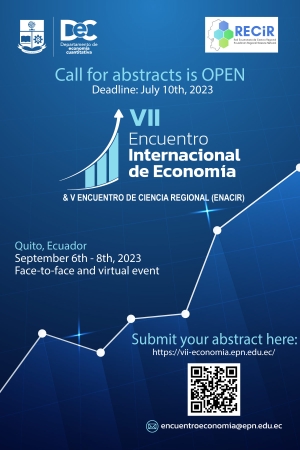Archives
Elisabete Martins
ERSA2023 Agenda is out!
|
2023 ERSA Prize in Regional Science: Winner Unveiled
|
In Memoriam: János Rechnitzer
 Professor János Rechnitzer, a defining figure of Hungarian regional science, has died. His funeral will take place today in Győr.
Professor János Rechnitzer, a defining figure of Hungarian regional science, has died. His funeral will take place today in Győr.
János Rechnitzer was the president of the Hungarian Regional Science Society twice, for a total of 8 years. He was also the chairman of the Regional Scientific Committee of the Hungarian Academy of Sciences. He is one of the founding professors of the István Széchenyi University in Győr.
He did a lot for the recognition, promotion and organization of regional science in Hungary. For 15 years, he was the editor-in-chief of Tér és Társadalom, the leading journal of Hungarian regional science. In the doctoral school in Győr that he led, 150 researchers obtained PhD degrees.
Balázs Forman
John Von Neumann University, Kecskemét
Prof. Paul Elhorst (University of Groningen) is awarded the 2023 Jean Paelinck RSAI Award!
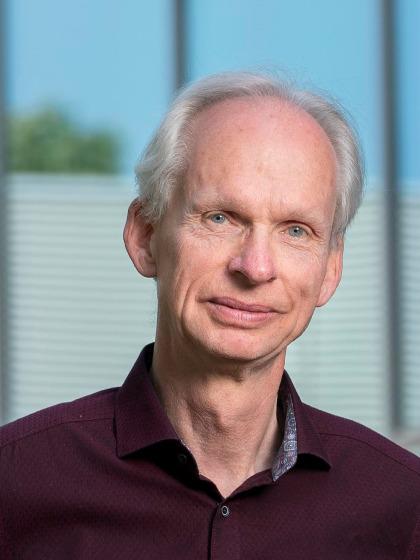 Prof. Paul Elhorst, University of Groningen, the Netherlands, is awarded the 2023 edition of the Jean Paelinck award!
Prof. Paul Elhorst, University of Groningen, the Netherlands, is awarded the 2023 edition of the Jean Paelinck award!
The Jean Paelinck committee, made up of Geoffrey Hewings (Chair), Isabelle Thomas, Janet Kohlase, Juan Cuadrado-Roura, and Kieran Donaghy, provided the following motivation:
Paul Elhorst is Professor of Spatial Econometrics at the University of Groningen, the Netherlands, Fellow of the Spatial Econometrics Association and Editor-in-Chief of the journal Spatial Economic Analysis. During his 40 years academic career he has maintained an active research and publication schedule, a career that demonstrates his commitment to research and scholarship in regional science methods. In the 1990s his research activities focused on regional labor market analysis and then shifted increasingly to spatial econometric methods (theory and applications), with applications in a diversity of research areas such as economic growth, research productivity, regional tax competition, military spending, foreign direct investment and transport economics.
Paul is known for his innovative work on spatial panel models. He has made a host of contributions to spatial panel data models highlighted in his 2014 book Spatial Econometrics: From Cross-Sectional Data to Spatial Panels. Aside from its major themes, including static and dynamic spatial panel data models, this book bridges the gap between theoretical spatial econometricians and practitioners, contains a host of useful observations and illustrations, and provides Matlab routines with which researchers can run on their own empirical problems. The more than 2,000 Google citations this book has received clearly demonstrate the international impact of his research in enhancing the use of regional science methods to understand and interpret the spatial structure of economies.
Andrea Caragliu
Associate Professor of Regional and Urban Economics
Politecnico di Milano, ABC Department
RSAI Executive Director
ERSA Monthly E-news - June 2023
|
|
|
|
|
|
|
|
|
|
|
|
|
|
|
|
|
|
|
|
|
|
|
|
|
|
|
|
|
|
|
|
|
|
|
|
|
|
|
|
|
The latest issue of Regional Science Policy & Practice are available! Vol. 15, No. 5, June 2023, Special Issue: Regional Economic Growth and Development in the Global South
|
Regional Science Policy & Practice Pages: 931-1125 June 2023 Issue Edited by: Abdul Shaban |
ISSUE INFORMATION
![]() Free Access
Free Access
Pages: 931-932 | First Published: 29 June 2023
EDITORS' NOTE
Pages: 933 | First Published: 29 June 2023
INTRODUCTION
Regional economic growth and development in the Global South
Abdul Shaban
Pages: 934-938 | First Published: 29 June 2023
ORIGINAL ARTICLES
Md. Saiful Islam
Pages: 939-955 | First Published: 09 June 2022
Helmi Hamdi, Abdelaziz Hakimi
Pages: 956-972 | First Published: 07 December 2022
Cultural diversity, human capital, and regional economic growth in India
Abdul Shaban, Shahbaz Khan
Pages: 973-991 | First Published: 28 March 2022
Gisele Msann, Viswanathan Pozhamkandath Karthiayani
Pages: 992-1007 | First Published: 08 January 2023
Rinku
Pages: 1008-1018 | First Published: 15 March 2023
Sanjib Mondal, Pritam Ghosh, Pratima Rohatgi
Pages: 1019-1036 | First Published: 25 May 2022
A sustainable decision‐making framework for school consolidation policy
Abhishek Bhatnagar, Nomesh B. Bolia
Pages: 1037-1063 | First Published: 29 March 2022
Wycliffe Obwori Alwago
Pages: 1064-1085 | First Published: 13 October 2022
Suranjan Majumder, Subham Roy, Arghadeep Bose, Indrajit Roy Chowdhury
Pages: 1086-1113 | First Published: 17 November 2022
Tanneries in Kanpur and pollution in the Ganges: A theoretical analysis
Amitrajeet A. Batabyal
Pages: 1114-1123 | First Published: 18 October 2022
BOOK REVIEW
Abdul Shaban
Pages: 1124-1125 | First Published: 22 November 2022
RSPP Call for Papers | Special Issue: Regional disparities, social welfare and economic development in Latin America

Regional Science Policy & Practice (RSPP)
Call for Papers Special Issue: Regional disparities, social welfare and economic development in Latin America
Guest editors
Carolina Guevara Rosero, Departamento de Economía Cuantitativa, Facultad de Ciencias, Escuela Politécnica Nacional - This email address is being protected from spambots. You need JavaScript enabled to view it.
Karina Sass, University of Sao Paulo - This email address is being protected from spambots. You need JavaScript enabled to view it.
Motivation
The Latin American countries are the most unequal countries in the world, not only considering income inequality across individuals but also across regions within them. Specifically, in Latin America, on average, the ratio between the richest region and the poorest region is approximately 8 times while in OECD countries, this ratio reaches only 2 times (ECLAC-ILPES, 2012). Therefore, spatial disparities across regions within Latin American countries need to be analyzed more deeply to have a better comprehension of its causes and effects. It is especially interesting to analyze the case of Latin American cities since they have particularities that are not accounted for in theories for developed countries, such as informality, poverty, crime, insecurity, economic specialization, urban expansion, among others. Differences across regions within LAC countries in various dimensions such as basic infrastructure, amenities, transport infrastructure, innovation, productive and social networks, and socioeconomic characteristics in general may influence the economic performance and welfare of economic agents, including people, communities and firms in those regions.
While big cities are attractive places to workers and firms due to more and better opportunities, they face issues such as crime and insecurity. Although small cities would not have severe problems of insecurity, they lack basic services.
This calls for public policy recommendations and actions aiming to reduce unequal regional development and growth.
This special call aims to mobilize studies on regional disparities in Latin America that give insights for possible policy recommendations. We kindly invite contributions on topics related (but not limited) to:
• Spatial disparities at the subnational level, causes and effects
• Firms (innovation) and social networks in regions
• Effects of spatial disparities in economic performance
• Effects of spatial disparities in welfare
• Regional migration
• Regional economic structure and productive networks and resilience
Invitation for submission
We welcome original, unpublished papers that address the above questions, or any other research questions not mentioned, as they relate to regional economics. We look forward to papers from all parts of the world.
Please note that the deadline for submitting papers to https://www.sciencedirect.com/journal/regional-science-policy-and-practice for the RSPP Special Issue on Regional disparities in Latin America and social welfare and economic development is December 15, 2023, with foreseen publication of accepted papers in 2024. Please contact This email address is being protected from spambots. You need JavaScript enabled to view it. if you need more information.
The New Issue of Regional Statistics is already Available! (2023, VOL 13, No 3)
THE NEW ISSUE OF REGIONAL STATISTICS IS ALREADY AVAILABLE!
We are pleased to inform you that a new issue of the Regional Statistics has been released and now it’s available online.
https://www.ksh.hu/terstat_eng_current_issue
REGIONAL STATISTICS, 2023, VOL 13, No 3.
STUDIES
Arnoldo López-Marmolejo – C. Vladimir Rodríguez-Caballero: Assessing the effect of gender-related legal reforms on female labour participation and GDP per capita in the Central American region
https://www.ksh.hu/statszemle_archive/regstat/2023/2023_03/rs130301.pdf
Nguyen Van Thanh – Dung Thi Thuy Nguyen – Phuong-Tra Vu – Hiep Ngoc Luu – Hoa Hanh Hoang : The impact of polarisation on Covid-19 outcomes, 2020
https://www.ksh.hu/statszemle_archive/regstat/2023/2023_03/rs130302.pdf
Mohammad M. Jaber: Multidimensional energy poverty in Jordan between 2009 and 2018: Progress and possible policy interventions
https://www.ksh.hu/statszemle_archive/regstat/2023/2023_03/rs130303.pdf
Arnold Tóth – Botond Géza Kálmán – József Poór – Imola Cseh Papp: Impact of the Covid-19 pandemic on unemployment in selected countries and country groups
https://www.ksh.hu/statszemle_archive/regstat/2023/2023_03/rs130304.pdf
Vít Pošta: The disaggregation of the projected impacts of automation in the regional labour markets between 2019 and 2030: Case of the Czech Republic
https://www.ksh.hu/statszemle_archive/regstat/2023/2023_03/rs130305.pdf
András Igari: Spatiotemporal inequalities of excess mortality in Europe during the first two years of the Covid-19 pandemic
https://www.ksh.hu/statszemle_archive/regstat/2023/2023_03/rs130306.pdf
Trang L. Q. Tran – Miklós Herdon – Thich D. Phan – Tuan M. Nguyen: Digital skill types and economic performance in the EU27 region, 2020–2021
https://www.ksh.hu/statszemle_archive/regstat/2023/2023_03/rs130307.pdf
Anel A. Kireyeva – László Vasa – Nailya K. Nurlanova – Lee Jung Wan – Aisulu Moldabekova: Factors causing depopulation of vulnerable regions: Evidence from Kazakhstan, 2009–2019
https://www.ksh.hu/statszemle_archive/regstat/2023/2023_03/rs130308.pdf
Join us to our social networking sites:
New issue of the Romanian Journal of Regional Science, Summer Issue: Vol. 17, No.1, 2023. now available!
The Romanian Journal of Regional Science has released its Summer Issue: Vol. 17, No.1, 2023
http://www.rjrs.ase.ro/index.php/current-issue/
Vol.17, No.1, Summer, Issued June 2023
All articles are downloadable
by Zhiling Wang, Erasmus University Rotterdam and Tinbergen Institute, Amsterdam, Thomas de Graaff, Free University, Amsterdam and Tinbergen Institute, Amsterdam, Peter Nijkamp, Open University, Heerlen, the Netherlands
by Yannis Psycharis, Panteion University, Athens, Anastasia Panori, Aristotle University of Thessaloniki, Greece
Globalization and Pollution in Central and Eastern European EU Countries ● pp. 66-82
by Mihaela Simionescu, University of Bucharest and Institute of Economic Forecasting, Romanian Academy, Romania
by Ion Lucian Cepraz, Fatma Fourati, Loïc Sauvée, Polytechnic Institute Unilasalle, Beauvais, France
BOOK REVIEW
Paweł Churski, Tomasz Kaczmarek (Editors), Three Decades of Polish Socio-Economic Transformations Geographical Perspectives, Springer Economic Geography, Springer Economic Geography, 2022 ● pp.109-112
by Andrzej Miszczuk, Maria Curie-Sklodowska University, Poland
Ecuadorian Section | Call for papers: VII Economic Meeting and the V Meeting of Regional Science (ENACIR), 6-8 September 2023
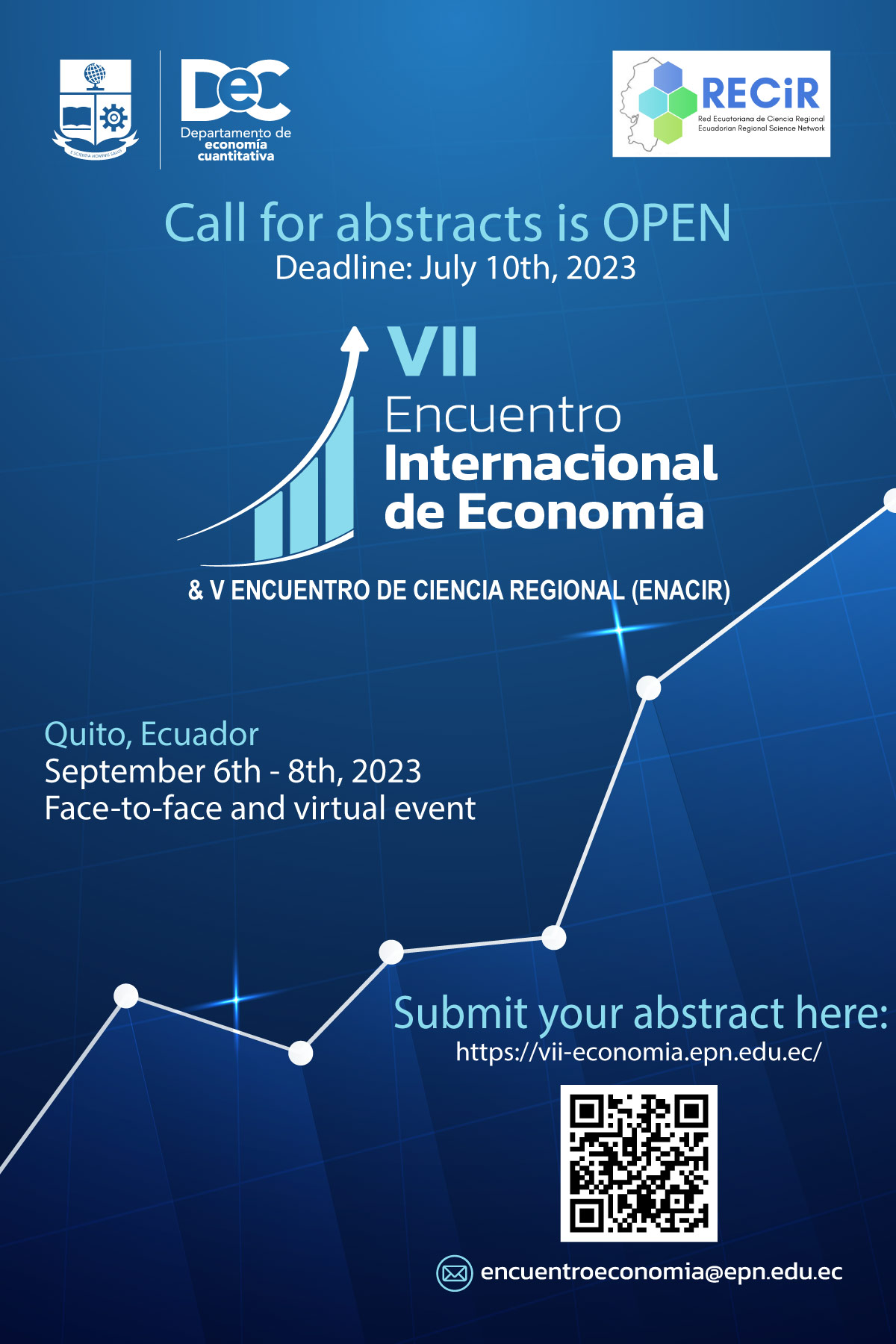
The National Polytechnic School (EPN) and the Ecuadorian Regional Science Network (RECIR) are pleased to announce the VII Economic Meeting and the V Regional Science Meeting (ENACIR), which will take place from 6 to 8 September 2023. These free events are open to researchers, teachers, students and professionals in the economic and related fields.
The V Regional Science Meeting will focus on "Innovation and sustainability in the digital transformation of regions", addressing topics such as technological innovation, digitization of productive processes, digital education, digital governance and digital inclusion. The implications of inequality, migration, innovation and technology in the development of regions will also be discussed.
The VII Economic Meeting will cover a wide range of topics, from post-VOID-19 economic reactivation in Latin America to agrarian economy, industrial economy, welfare economy, regional economy, econometrics, economic policy, environmental and ecological economy, finance, heterodox economy, local economic development and the effects of the COVID-19 pandemic.
The key dates to consider are:
Submission of papers: from May 2 to July 10, 2023
Acceptance of works: from 18 July to 1 August 2023
Registration of participants: from 24 July to 30 August 2023
General public registration: from 24 July to 30 August 2023
Celebration of the meeting: from 6 to 8 September 2023
¡Do not miss the opportunity to participate in these high level academic meetings! For more information, visit our website https://vii-economia.epn.edu.ec/index.php/en.
We hope to see you there!"
More information at: www.vii-economia.epn.edu.ec/index.php/en
About Us
The Regional Science Association International (RSAI), founded in 1954, is an international community of scholars interested in the regional impacts of national or global processes of economic and social change.




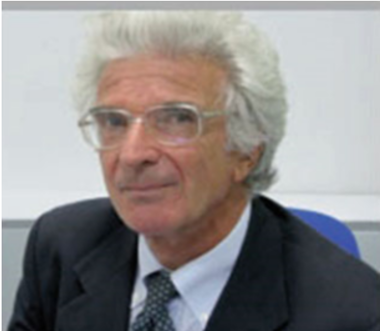





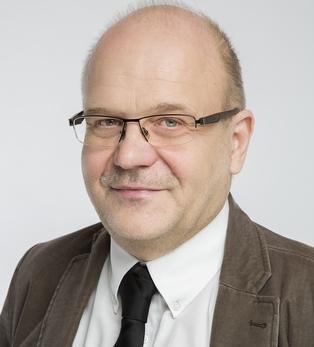 The ERSA and the Jury of the ERSA Prize Committee are pleased to announce that this year’s prize recognizes Attila Varga (Professor of Applied Economics, University of Pecs, Hungary) for his outstanding contribution in regional science.
The ERSA and the Jury of the ERSA Prize Committee are pleased to announce that this year’s prize recognizes Attila Varga (Professor of Applied Economics, University of Pecs, Hungary) for his outstanding contribution in regional science.





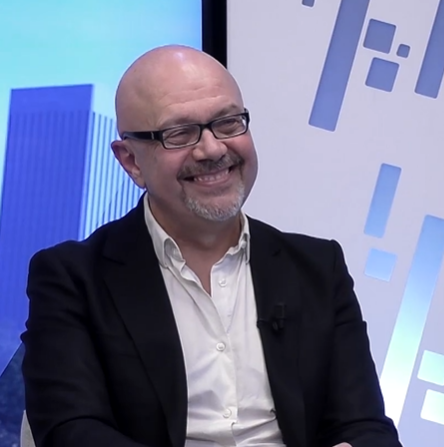 Dear Members of ERSA, dear Colleagues,
Dear Members of ERSA, dear Colleagues,

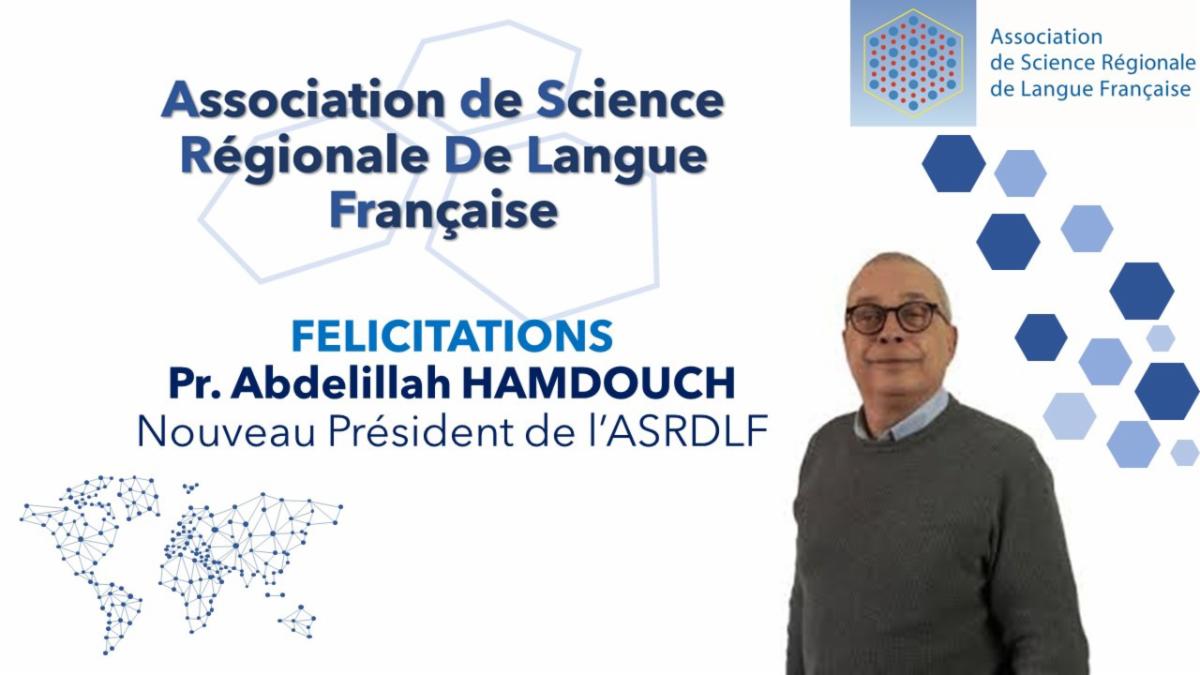 We are delighted to communicate that Abdelillah Hamdouch (University of Tours, France) has been elected as the new President of French Section of the RSAI-ERSA, at La Réunion during the
We are delighted to communicate that Abdelillah Hamdouch (University of Tours, France) has been elected as the new President of French Section of the RSAI-ERSA, at La Réunion during the 


















